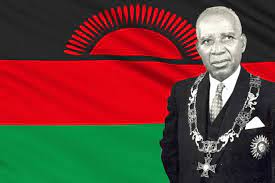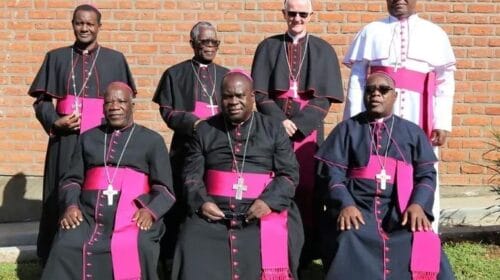Covid-19, Nigerian Leaders, Public Health And Infrastructure By Oyebola Oyesola
I am no expert at pandemic disease and global health crisis but the responses of African leaders and Nigerian leaders to be specific to the global health crisis of Covid-19 has generated a lot of mixed reactions in my mind. Should I be happy that finally this pandemic is generating the right responses in “our so-called leaders” about the dire and terrible state of affairs of the Nigeria public health system or should I be sad that it has taken a disease which at the present is yet to cause a lot of fatality and mortality in Nigeria for our leaders to wake up from their slumber and act! Oh, I forgot, for now most of the positive cases are in these corrupt leaders that have travelled and then come home in the face of crises in other nations. Unfortunately, in Nigeria, they will still be given priority for the limited health care available. Sad.
From the abode of my room, I have read with disdain news alerts such as “Dangote, Wigwe lunch Coalition Against Coronavirus, “Sterling bank offers free medicals”; “Kenya president, VP take 80% salary cut to fund fight against coronavirus”, “Kyari wrote to the leadership of the national assembly not to evade screening at airport”. What!!! What have all these so-called leaders done in the face of cholera outbreak, neglected tropical diseases, yellow fever, malaria, Salmonella outbreak, Lassa fever outbreak to name a few. How come none of these people deemed it fit to significantly contribute towards research and treatment for the aforementioned disease in Nigeria and Africa as a whole? How come they were not forming coalitions to work on sleeping sickness? Is it because these diseases do not affect them in high-walled, golden-laced houses? Or is it because they can travel at their wimp to developed nations for “medical treatment”. I dare them now to travel. Shame!!!!
At the beginning of this pandemic and when the first case was isolated in Nigeria, I celebrated. Not because having this disease in Nigeria is a good thing, but because due to the actions of few public and private institutions still working in Nigeria, we are not only able to detect the disease in Nigeria but we were able to submit the genomic sequence for the index case for access by everyone around globe. Kudos to everyone at NCDC, ACEGID and NIMR and all their partners that have ensured we have institutions that can act at the right moment for situations like this. This is a feat achieved by institutions which one cannot say were directly and completely funded by the Nigerian government. Shame!!!!
Afterwards, as every Nigerian, present in Nigeria or elsewhere in the world, I have hung on to every ray of hope that by chance this cup would pass us by. Perhaps, the average Nigerian walking on the streets of Gbagada, Lagos in search of his next meal will not be susceptible. Or that by sheer luck, the receptor to which the virus binds to would not be present in Nigerians as if we are not humans. Or perhaps the virus will not be able to survive the heat and humidity present in tropical regions. Or maybe by virtue of the fact that we have being exposed to a lot of pathogens in our lifetime, that trained immunity would make the “average Nigerian” not susceptible to this virus. As the number of positive cases continue to rise in Nigeria and research on CoVID-19 continues elsewhere in world, some of these hypotheses and rays of hope have continued to be shattered. Sad.
This is not because I am okay with this disease affecting other parts of the world; we are anyway all humans, intricately connected and linked and every human life is important irrespective of race, age, nationality and religion. Rather, I was more concerned for Nigeria because I know for certain that the less than 500 ventilators currently present in Nigeria cannot serve the around 200 million Nigerian population. Oh, that is if we even have electricity to keep these ventilators going. This is because I am aware that in the face of crisis, the access to health and critical care found elsewhere in the world will still be disproportionate in my beloved country based on your position in the society and weight of your pocket rather than need. Sad!
Since I have been studying infectious disease, I can tell you for a fact that based on most infectious disease maps, Nigeria has high disease incidence and prevalence rates for a lot of infectious diseases. I have sat in different classes and seminars during my graduate studies, looking at these maps and sometimes feeling a note of helplessness. What can I do to help and act? Many times, I have wondered how our leaders can attend meetings with other world leaders in their Babarigas and with a straight face get funding resources necessary for these global health disease and research, pocket it and share it amongst themselves. Double shame!!!!!!
Major takeaways
While this is not the time to gloat about our past inactions and corrupt practices, I would hope this moment will bring a positive turnaround for everyone, including myself, and to the people in those high-powered rooms and places.
Dear Aliko Dangote and Herbet Wigwe, I understand you are but private citizens trying to make your money and do your best in the face of this crisis. While medical tents are great initiatives in the face of Covid-19, please note that Nigeria as a nation needs more than that. We need to equip health and research institutions that can step up to act in the face of any epidemic or pandemic. We need structures that can last the test of time and that we can rely on for the next super pathogen coming along. Ebola and Covid-19 are just telling us to be ready.
To the GTBs, Sterlings and other corporate organizations, thanks for your responses so far. However, I am hopeful that this will suggest to you that part of your corporate social responsibility should not only be limited to sponsoring talent shows, musical shows and Big Brothers but funds should also be directed towards research, education, medicine, building lasting infrastructures and helping the STEM field in general. We need all hands on deck working toward building sustainable solutions to tackle health and economic crisis that would affect us all.
Dear Abba Kyari, I hope you will display the same firmness and staunchness to the National Assembly and House of Representative the next time we have the next Yellow fever outbreak or Fevers of Unknown Origins (FUO) that do not directly affect you.
To Mr. President, amiable VP, legislators and House of Reps. I, hope you would also deem it fit to cut your salaries to fund research that affect the common Nigerian populace. Research in Nigerian institutions cannot depend solely on funding from developed nations and non-profit organization!!!! The time to act was yesterday but it is never too late to retrace our steps.
To the Nigerian FSB board and other scholarship awarding institution in Nigeria, I would like to believe that unlike what I was told after my Commonwealth studies in the UK, this is the time for you to tap into the wealth of learned Nigerian scholars some of which you have directly sponsored for situations like this.
To some Nigerian higher institutions of learning, I hope that the next funding allocation from TETFUND and any funding institutions will not only be used to buy cars and carpets for your offices but will also be directed towards research and effective learning at these institutions. I know and understand that times are tough and hard, especially since funding and resources for other administrative purpose like this are limited, but this is perhaps something worth thinking about.
To the Nigerian pastors, in case you did not know before, we have lots of infectious diseases in Nigeria. Therefore, if your explanation is that we were exempted from Covid-19 prior to this because of our prayers, then I wonder why, year in year despite our prayers, those infectious disease maps that I had earlier alluded to are not decreasing. This is time for you to contribute as well to the public health crisis in the nation. When Christianity was brought to Nigeria, it started with building hospitals etc, I hope this will also suggest to you that we need you to also contribute your quota. We are a sinful nation, anyway; judging by those maps, prayers and miracles are not the only solution. God has also given the humble and low-hearted wisdom; we need to use it.
To the Nigerian government, I hope this will suggest to you that paying competitive salaries and benefits for your professionals is not just a right for those professionals but it is necessary for you to continue to build a 21st century workforce that can be solutions providers and innovators rather than one contributing to the brain drain we continue to experience in our dear nation. These professionals would be critical at a time like this for us to develop homegrown solutions that would help to build the health care systems and the economy, which might be unique to every country. For example, even if Chloroquine works other countries, can we reliably say we don’t have Chloroquine resistance in Nigeria, or is every other country dealing with the attendant crisis associated with oil doom?
Finally, to the Nigerian scientists and scholars in the diaspora, including me, who have received one scholarship or funding offer based on personal statements detailing your passion and interest to contribute towards the development of Nigeria and Africa in general but have not looked back and have continued to enjoyed the “abroad”, we are all part of the problem. We are as complicit in the crime as those politicians. I understand that many at times, some have tried to do their best without being given the opportunity but I believe we should be able to use our skillset and knowledge to solve problems rather than parading the statistics on proportion of Nigerians with PhDs in the US.
As an African tainted by my religious bias, I continue to pray that Nigeria and the whole world in general heals at this moment.
Oyebola Oyesola is a PhD student in the Department of Immunology and Infectious Disease at Cornell University, New York





